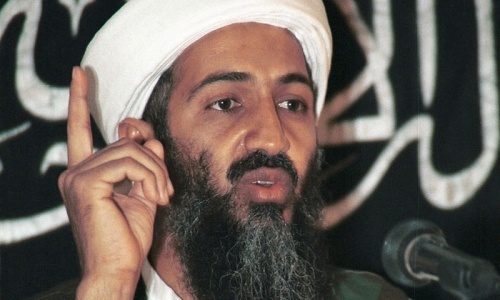ISLAMABAD: Justice Javed Iqbal, who headed the Abbottabad Commission set up to conduct a probe after Osama bin Laden was found and eliminated in a covert operation by the US forces, on Monday called for the inquiry report to be made public and its recommendations implemented.
The former Supreme Court judge was speaking at a meeting of the Senate standing committee on interior held at the Parliament Lodges with PPP Senator Rehman Malik in the chair.
“Unfortunately a routine has been made to establish commissions after every incident and then put the findings of the report on the shelf due to which there is an impression that commissions are made to pass the time so that the public would forget the incident. The report of the Abbottabad Commission must [also] be lying on some shelf,” Justice Iqbal said.
Bin Laden had founded Al Qaeda which claimed responsibility for many terrorist assaults worldwide, including the Sept 11, 2001 attacks in the United States. He survived a US attack in Afghanistan and on May 2, 2011 the American forces carried out a surgical strike on a house in Abbottabad in which he was reportedly killed.
Justice Javed’s remarks about Osama’s presence in KP city intriguing
After the incident Pakistan came into limelight and questions surfaced whether bin Laden was deliberately kept in Abbottabad near a training centre of the armed forces.
The government formed the commission to hold an inquiry into the incident. Other members of the inquiry commission were Abbas Khan, Ashraf Jehangir Qazi and retired Lt Gen Nadeem Ahmed.
Though the inquiry was completed three years ago, its report was never made public. One version of the report — spread over almost 700 pages and containing interviews of some 300 people as well as over 100 recommendations — was leaked by an international media group in 2013.
Justice Iqbal said that an amount of Rs50 million had been released by the government for carrying out the inquiry and the report had been completed after detailed deliberations. He said the report should be made public and its recommendations should be implemented.
In significant remarks, Justice Iqbal said his daughter keeps asking him whether bin Laden was indeed living in Abbottabad as was claimed by the US, but he told her that if he disclosed it then there would be nothing left in the report.
He said the government should make the report public. However, if necessary, some of its parts can be left classified.
Talking to media persons after the meeting, Justice Iqbal said the report focused on identifying the people responsible for the incident.
In reply to a question, he said that personalities responsible for the incident had been identified in the report and actions had been suggested.
“As I am under oath, I cannot reveal the names of those persons. Only the government can reveal the names,” he said.
In July 2013, Mr Qazi informed the Senate Committee on Defence (SCD) that the leaked inquiry report was the first draft and not the final version submitted to the prime minister.
The final copy is said to be a watered-down version of the leaked draft that was highly critical of the armed forces, particularly the Inter-Services Intelligence, not only for its failures, but also for stymieing the growth of civilian intelligence organisations.
The final report comes with a 40-page strongly-worded note of dissent by Mr Qazi and Justice Iqbal’s observations on the note.
Mr Qazi and Gen Ahmed separately scripted the initial drafts. The reconciled and final version was authored by Justice Iqbal.
The SCD was informed that differences had cropped up among the members over the issue of fixing responsibility after the preparation of the first drafts.
Chairman Iqbal then had to come up with the “reconciled” copy. But Mr Qazi disagreed with the chairman over his alleged attempt to “play safe” in his findings and expressed his mind in his dissenting note.
The phrase “collective failure” was included in the report on the suggestion of Justice Iqbal who did not want any particular individual or institution to be blamed, and suggested that all pillars of the state shared the ignominy for having contributed in one way or another to the situation that culminated in the May 2 national embarrassment.
Published in Dawn, December 20th, 2016














































